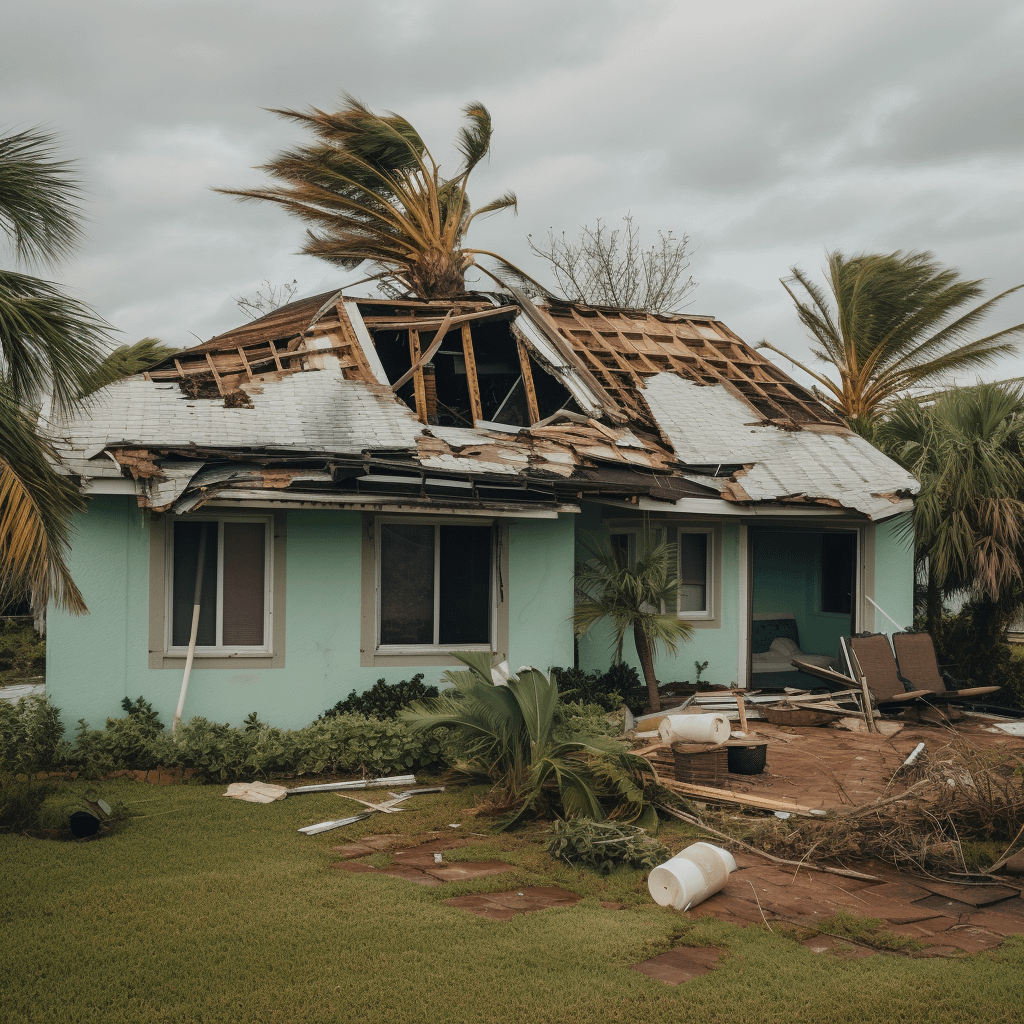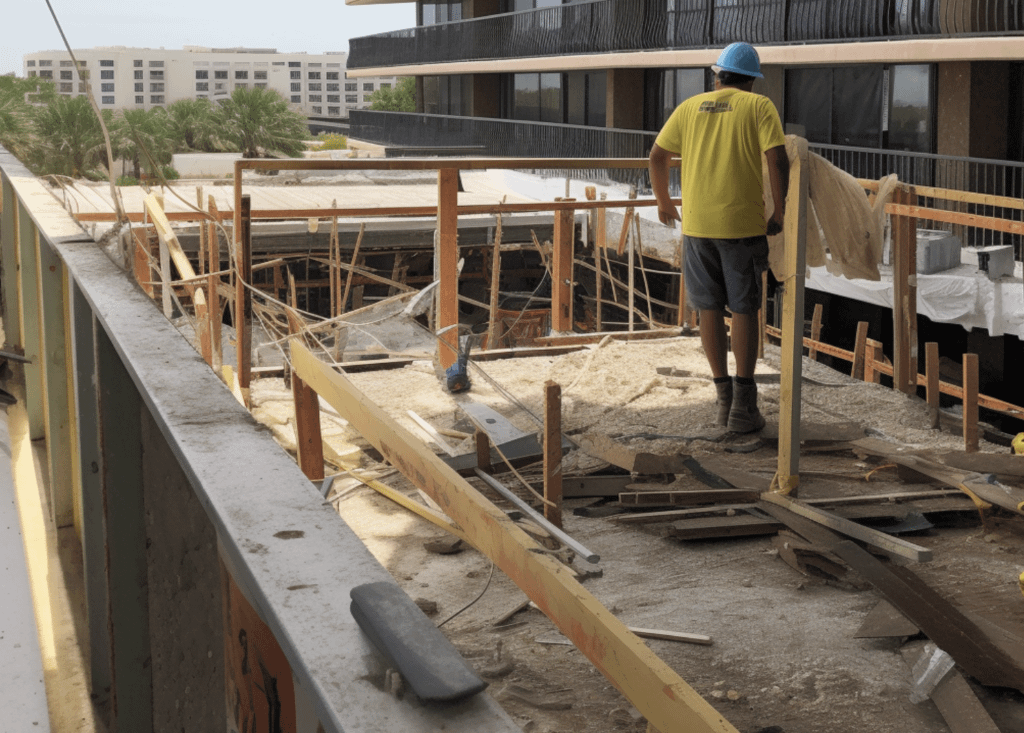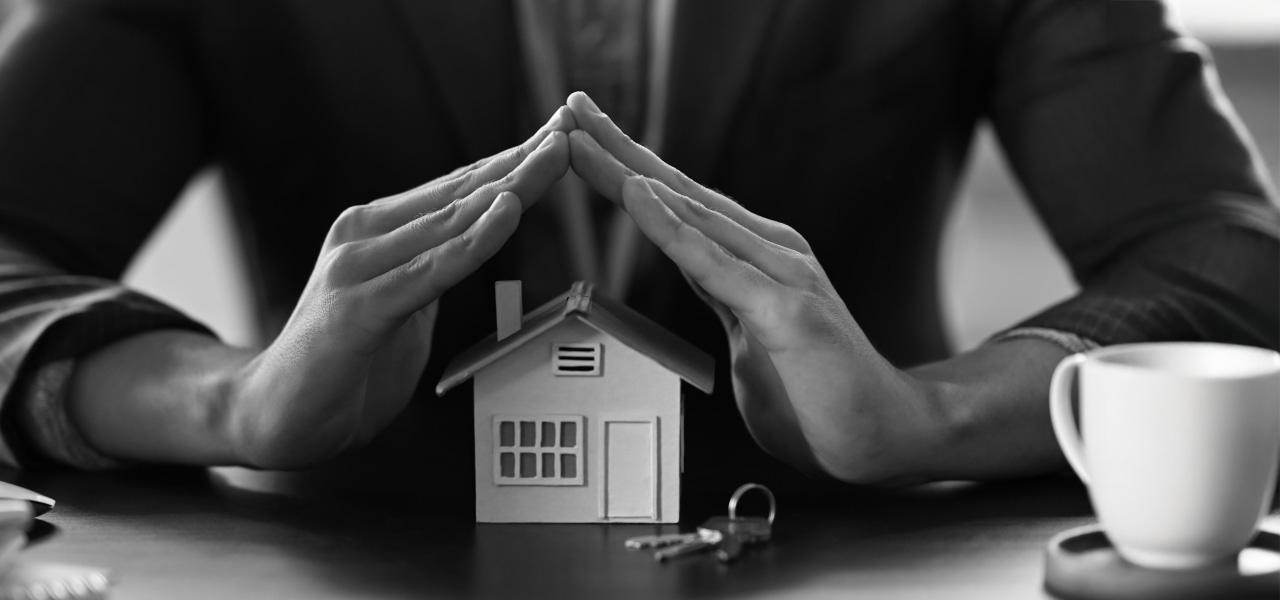Table of Contents
Dealing with property damage is stressful enough—fighting your insurance company shouldn’t be part of it. Whether your home or business has been damaged by a hurricane, fire, burst pipe, roof leak, or even theft or vandalism, you have insurance for a reason: to feel protected when something goes wrong. But too often, policyholders find that when it’s time to file a claim, their insurance company drags its feet, underpays, or denies the claim outright.
Don’t let delays, low offers, or other issues cost you more. At Levin Litigation, our Hollywood, FL property insurance lawyers know how to pressure insurers and resolve claims the right way. Contact us today for a free consultation and find out how we can help.
Why Hire a Florida Property Insurance Lawyer
While property damage insurance policies may seem clear-cut, the unfortunate reality is that between filing a claim and receiving a payout, any number of things can go wrong, from delays to unfair denials. You may even receive a payout that simply doesn’t align with the losses you’ve suffered.
Sometimes, these issues are simple mistakes, but in many cases, they’re the result of an insurance company that is simply trying to protect its own bottom line.
They may issue policies that are intentionally misleading, whether through confusing language or fine print, or use other predatory tactics, like getting you to admit to wrongdoing, to rationalize the denial of your claim.
Regardless of your unique situation, it’s always a good idea to play it safe and contact a property damage insurance claim lawyer to help you settle your claim. Our award-winning firm is well-versed in the many ways insurance companies may try to minimize or deny your claim. Our Florida property insurance lawyers can communicate and negotiate with them on your behalf to seek the best possible outcome.
How Our Property Insurance Lawyers in Florida Can Help
At Levin Litigation, we do more than just negotiate, we step in with a clear strategy, reliable communication, and the experience to take over when your insurance company won’t do its job. We know how these companies operate because many of our attorneys used to work for them. Now, we use that inside knowledge to fight for policyholders like you.
Here’s what our property damage insurance claim lawyers bring to the table:
- Policy analysis and legal strategy: We review your insurance policy in detail and identify how Florida law applies to your situation—so you know exactly where you stand from the start.
Independent investigation: We work with trusted experts, like engineers, contractors, and adjusters, to gather independent evidence and challenge any undervalued or denied claim. - Claim preparation and communication: We handle all communication with your insurer and manage the paperwork, so you don’t have to worry about delays, missed deadlines, or misstatements.
- Litigation support when necessary: If negotiation isn’t enough, we’re ready to take your case to court and keep fighting until your insurance company pays what it owes.
We’re here to take the pressure off, protect your interests, and guide you through the process with straightforward, responsive support.

Property Damage Insurance Claims: Common Disputes We Handle
There are countless reasons why a property damage insurance claim dispute might arise, but some types of disputes are more common than others. Below are a few of the most typical scenarios our firm sees our clients face:
Denied Claims
One of the most frustrating experiences for a home or business owner is having a property damage claim flat-out denied. Insurers may reject claims for a variety of reasons, often citing exclusions hidden in the fine print of your policy. For example, they may claim that roof damage caused by hurricane winds was actually the result of “wear and tear” or neglect.
In other cases, insurers may claim that you failed to meet policy conditions, such as filing the claim within a certain timeframe or providing sufficient documentation. Many times, these denials are based on technicalities, misinterpretations, or aggressive cost-saving strategies by the insurer.
Delayed Claims
One of the most important steps when filing a property damage insurance claim is meeting all the required deadlines. These time limits are often short and confusing, and that’s no accident. Many insurance companies rely on the fact that after a disaster, policyholders are overwhelmed, distracted, or unsure of the process.
Delay tactics come in many forms: requesting the same documents multiple times, switching adjusters mid-claim, going silent, or making last-minute contact just before closing hours to stall communication. In some cases, they’ll give you only a narrow window to review or appeal a low settlement offer, hoping you’ll miss it.
Underpaid Claims
Even when your claim is approved, the payout might fall far short of what it takes to properly repair or replace the damaged property. Insurance companies often undervalue claims by relying on biased adjusters, lowball repair estimates, or restrictive interpretations of your policy.
In many cases, we’ve seen clients who have sustained damage to their home or business receive an estimate from a contractor to rebuild, only to find that their insurance provider is offering a settlement that covers only a fraction of the cost.
Bad Faith Insurance Practices
There are times when the cost-saving strategies commonly utilized by homeowners’ insurance companies are more than just unethical; they can be illegal as well. A bad faith practice can take many forms, including deliberately misrepresenting policy terms, failing to conduct a proper investigation, ignoring valid evidence, or making unfair settlement offers without justification.
When insurers act in bad faith, they can be held liable for additional damages beyond the original claim amount.
What You Can Do Before Contacting a Lawyer If Your Insurance Claim Is Denied, Delayed, or Underpaid
When your property damage claim faces delays, denial, or an unfair settlement, it can feel like an uphill battle. While it’s important to act quickly, here are some steps you can take before reaching out to our property insurance claim lawyers:
- Keep thorough records: Document every interaction with your insurance company—calls, emails, letters—and save copies of all claim-related paperwork. Detailed records will help your lawyer understand your case and hold the insurer accountable.
- Follow up on delayed claims: If you haven’t received an update within a reasonable time (typically 30 days), try contacting your insurer for a status update. Be sure to note the date, time, and outcome of each attempt. However, repeated calls rarely speed things up, so don’t get stuck trying to manage the claim on your own.
- Review denial or settlement notices carefully: Read any denial letters or settlement offers thoroughly. Note the reasons given for denial or the basis of the settlement amount. This information is critical for your lawyer to evaluate your options.
- Avoid signing or accepting offers prematurely: Don’t sign any documents or accept settlement checks until you have consulted with a lawyer. Doing so can limit your rights to appeal or negotiate for a better outcome.
Taking these steps can prepare you to work effectively with a lawyer and strengthen your claim.
Types of Claims Our Property Insurance Attorneys in Hollywood, FL Handle
Levin Litigation has represented hundreds of clients in a wide variety of insurance dispute cases. Below are just a few of the common types of property damage that our clients commonly face:
- Water damage: Whether it resulted from a hurricane, storm, or significant precipitation, water damage is arguably the most common type of property damage Floridians face, and is often one of the most devastating. Unfortunately, it’s also one of the most disputed amongst insurance companies, which may claim the damage resulted from neglect or poor construction.
- Tile damage: Many homeowners find their tile damage claims denied or underpaid, especially when insurers argue that cracking or breakage was due to age or improper installation rather than a covered event. Tile damage can be expensive to fix, particularly when matching materials are hard to find. If you’re experiencing pushback on your property damage claim due to a tile damage dispute, we can help you appeal your settlement.
- Theft and vandalism: If your home or business has been targeted by theft or vandalism, you may expect your insurance to cover repairs and losses. However, insurers may downplay the value of stolen items or dispute the circumstances of the incident.
- Boat damage: Floridians also know the value of protecting their boats, but when accidents, storms, or theft lead to damage, getting your claim paid is often easier said than done. Our attorneys frequently handle these types of cases and are experienced in dealing with both property and marine insurance disputes.
- Fire damage: Florida sees millions of dollars worth of fire damage every year as well as the loss of hundreds due to fire fatalities. If you’ve fallen victim to fire property damage, we can help you file, negotiate, or litigate your claim.
- Roof leaks: In a high-humidity, high-rainfall state like Florida, having to make repairs to your roof from time to time is expected. But if you’ve been consistent in doing this and the damage to your roof is the result of a storm or hurricane, you’ll want to be prompt and thorough with your claim and contact a lawyer if anything seems off about your settlement amount.
- Hurricane and windstorm damage: Storm and hurricane damage is so common in Florida that it’s almost unheard of for residents not to experience it at some point in their lives. Unfortunately, this means that many insurance providers will also attempt to deny claims, especially if a major weather event has taken place.
- Collapse and structural failure: In some of the most severe examples of property damage, the home or business may suffer from a collapse. Our lawyers can help demonstrate that these structural failures happened due to insurable circumstances covered in your policy and litigate your case if they refuse to settle.

Florida Property Insurance Lawyer: FAQs
How Long Does an Insurance Claim Take For Property Damage?
Generally speaking, property insurance companies are required by Florida law to acknowledge all claims within 14 days and either approve or deny them within 90 days of filing. Within this 90-day period, they will also have 30 days to investigate the claim and contact you with any questions regarding details of the damage.
When Should I Hire a Property Insurance Lawyer?
You can hire a property insurance lawyer from the moment you realize your property is damaged. It may also be in your best interest to do so, so that they can handle all communication with your insurance provider from the start and file the required paperwork at the designated deadlines to avoid any potential issues that may come up. However, hiring a property insurance lawyer becomes much more essential if your claim is denied, if your settlement amount is significantly undervalued, or if you feel that your insurance provider is delaying your claim or using your statements against you. Regardless of where you are in the process, a property insurance lawyer is always a valuable resource.
What Kind of Lawyer Do I Need for Property Damage?
Not all lawyers are equipped to handle property damage claims. When looking for the right lawyer to take your case, always look for firms that have extensive experience in property insurance disputes and that have validated, positive reviews as well as successful case results.
How Much Does It Cost to Hire a Property Insurance Lawyer in Florida?
Most property insurance lawyers in Florida, including Levin Litigation, work on a contingency fee basis, meaning you don’t pay upfront. Instead, our firm only gets paid when we successfully recover compensation for you, and we will only receive a percentage of the settlement award.
Need Help With Property Insurance Claim? Contact Levin Litigation Today
At Levin Litigation, we know that the last thing you want to deal with when facing a natural disaster or other source of property damage is an unfair insurance settlement. Our property damage law firm understands just how frustrating it can be to work with insurance companies and how fragile these cases can be if any part of the process is missed. Regardless of the status of your claim, we encourage you to contact our firm if you feel that things aren’t moving in the right direction.





